43 label the replication fork
Browse Articles | Nature Chemistry 01.07.2022 · Developing stimuli-responsive bioorthogonal tetrazine ligations remains highly challenging, but a versatile approach that uses photocaged dihydrotetrazines has … Genetics: Chapter 12 HW Flashcards - Quizlet In the replication fork, label the leading and lagging strands and the 5′5′ and 3′3′ ends of the DNA and RNA molecules. The 5′5′ and 3′3′ labels are used multiple times. ... The initiation complex creates active replication forks as helicase unwinds DNA 3.RNA primers added to provide a 3' end for elongation 4. DNA polymerase ...
Genetics Chapter 12 Flashcards | Quizlet In the replication fork, label the leading and lagging strands and the 5′ and 3′ ends of the DNA and RNA molecules. The 5′ and 3′ labels are used multiple times. 1. 5' ... If the rate of DNA synthesis at a replication fork is 100,000 nucleotides per minute, how much time will theta replication require to completely replicate the ...

Label the replication fork
DNA Replication and Repair: DNA Replication | SparkNotes The first step in DNA replication is the separation of the two DNA strands that make up the helix that is to be copied. DNA Helicase untwists the helix at locations called replication origins. The replication origin forms a Y shape, and is called a replication fork. The replication fork moves down the DNA strand, usually from an internal ... DNA Replication Fork: Definition & Overview - Study.com The replication fork is the area where the replication of DNA will actually take place. There are two strands of DNA that are exposed once the double helix is opened. One strand is referred to as... Answered: . Draw a replication bubble with both… | bartleby Solution for . Draw a replication bubble with both replication forksand label the origin of replication, the leading strands,lagging strands, and the 5′and 3′…
Label the replication fork. Label DNA and Replication - Google Slides Label the diagram: DNA polymerase adds nucleotides (5' to 3') Replication fork is formed. DNA polymerase attaches to the primer. Okazaki fragments bound by ligase. DNA helicase unwinds DNA. Rearrange the steps to indicate the correct order: 1. Enzyme that unwinds DNA. DNA Replication Mechanisms - Molecular Biology of the Cell - NCBI Bookshelf Initially, the simplest mechanism of DNA replication seemed to be the continuous growth of both new strands, nucleotide by nucleotide, at the replication fork as it moves from one end of a DNA molecule to the other. But because of the antiparallel orientation of the two DNA strands in the DNA double helix (see Figure 5-2), this mechanism would require one daughter strand to polymerize in the 5 ... M7 DNA Replication Fork Homework.pdf - Name PCB3063... Name: PCB3063 Genetics DNA Replication Homework Date: Joseph Kung Label the Replication Fork in question 1. Take a clear picture of your replication fork and paste it into this word.doc. Type in your answers to questions 2-10. Type in your name above. Save and upload to Canvas. 1. Label the prokaryotic replication fork with all molecules and structures involved in their correct positions. Replication Fork | Science Primer The replication fork * is a region where a cell's DNA * double helix has been unwound and separated to create an area where DNA polymerases and the other enzymes involved can use each strand as a template to synthesize a new double helix. DNA Base RNA Base An enzyme called a helicase * catalyzes strand separation.
Hallmarks of DNA replication stress - ScienceDirect 16.06.2022 · Replication stress is commonly associated with reduced fork speed, which may reflect a reduction in fork function or stability, an increase of barriers in DNA, or defects in fork restart. Acceleration of replication forks can also result in genomic instability, which may be attributed to the aberrant stress response at forks ( Genois et al., 2021 ; Maya-Mendoza et al., … CONTRAINDICATIONS------------------------------ HIGHLIGHTS 2.1.2 Storage following Reconstitution After reconstitution, ACAM2000 vaccine may be administered within 6 to 8 hours if kept at room temperature (20- 25°C, 68-77°F). Micro 261 Exam 1- Chapter 4 Mastering Questions - Quizlet Correctly label the items in this DNA replication fork diagram. Correctly label the steps/parts in this diagram representing the central dogma of molecular biology. The functional unit of genetic information is the gene In all cells, genes are composed of nucleic acids The flow of biological information begins with DNA replication DNA Replication Fork Flashcards | Quizlet Replication Fork site or junction/section where double-stranded DNA splits apart into 2 single strands 3' and 5' ends reads this way and builds opposite way Leading Strand continuous replication Lagging Strand discontinuous replication RNA Primer connects DNA to start replication RNA Primase what makes RNA primer DNA Polymerase
GitHub - IndustryEssentials/ymir: YMIR, a streamlined model … Configure the Label Studio authorization token After the user registers and log in to Label Studio, select "Account & Settings" in the upper right corner of the page. Then, copy the token value and paste it into the corresponding location (LABEL_STUDIO_TOKEN) in the .env configuration file of the YMIR project. An example is as follows: Label The Diagram Showing Dna Replication - Blogger Labelled diagram of replication fork: The primer synthesized by primase enzyme. You should label all the parts of the dna including the covalent and hydrogen bonds. Rna primers (label 3′ and. 2 600 Dna Replication Stock Photos Pictures Royalty Free Images Istock from media.istockphoto.com The Initiation and Completion of DNA Replication in Chromosomes We have seen how a set of replication proteins rapidly and accurately generates two daughter DNA double helices behind a moving replication fork. But how is this replication machinery assembled in the first place, and how are replication forks created on a double-stranded DNA molecule? In this section, we discuss how DNA replication is initiated and how cells carefully … Helicase - Wikipedia Another way to view the passive helicase is its reliance on the transient unraveling of the base pairs at the replication fork to determine its rate of unwinding. [7] In active helicases, B < k B T {\displaystyle B
Draw a labelled diagram of replicating fork. Hard. View solution. >. DNA replicates in a semi-conservative manner in which each individual strand is copied to form a new molecule of DNA. The two strands can be labelled with isotopes using substrates that contain either normal 1 4 N or its heavy isotope 1 5 N. In an experiment, one strand of DNA was labelled with 1 4 N and the other with 1 ...
Dna Replication Labeling Worksheet - Google Groups All groups and messages ... ...
Drawing the Replication Fork - YouTube Appropriate knowledge level for undergraduate biology majors in their first semester of biology.
PDF Bio 102 Practice Problems Chromosomes and DNA Replication 2. Below is a drawing of a replication fork. (1) Label the 3′ and 5′ ends of each nucleic acid strand shown. (2) Label the leading and lagging strands. (3) Two enzymes are shown in the drawing: one represented by a rounded rectangle and one by a white circle. Place the names of these enzymes in the boxes provided.
Label the nitrogenous bases replication fork DNA polymerase the ... Label the nitrogenous bases replication fork DNA polymerase the original strand Label the nitrogenous bases replication fork dna School University of Ontario Institute of Technology Course Title BIOL 3610U Uploaded By aalal Pages 7 This preview shows page 5 - 7 out of 7 pages. View full document See Page 1
Okazaki fragments - Wikipedia The work of Kiwako Sakabe, Reiji Okazaki and Tsuneko Okazaki provided experimental evidence supporting the hypothesis that DNA replication is a discontinuous process. . Previously, it was commonly accepted that replication was continuous in both the 3' to 5' and 5' to 3' directions. 3' and 5' are specifically numbered carbons on the deoxyribose ring in nucleic acids, and refer to the ...
GitHub - osixia/docker-openldap: OpenLDAP container image 🐳🌴 Replication options: LDAP_REPLICATION: Add openldap replication capabilities. Possible values : true, false, own. Defaults to false. Setting this to own allow to provide own replication settings via custom bootstrap ldifs. LDAP_REPLICATION_CONFIG_SYNCPROV: olcSyncRepl options used for the config database
DNA Replication Steps and Process - ThoughtCo Step 1: Replication Fork Formation. Before DNA can be replicated, the double stranded molecule must be "unzipped" into two single strands. DNA has four bases called adenine (A), thymine (T), cytosine (C) and guanine (G) that form pairs between the two strands. Adenine only pairs with thymine and cytosine only binds with guanine.
DNA Replication Labeling Diagram | Quizlet An enzyme that creates a short RNA primer for initiation of DNA replication. RNA Primer short segment of RNA used to initiate synthesis of a new strand of DNA during replication The primer synthesized by primase enzyme DNA Polymerase on Leading Strand synthesizes new DNA only in the 5' to 3' direction Ligase
Rad51-mediated replication fork reversal is a global response to ... The labeling protocol and representative fibers are included in Fig. S1. At least 100 tracks were scored per sample. Horizontal lines represent the median value, and boxes and whiskers show 10-90th percentiles. ... RECQ1 and PARP activity control replication fork progression and accumulation/restart of reversed forks upon different types of ...
DNA Quiz - University of Notre Dame 8. DNA replication c. process of making a copy of DNA 9. cytosine d. makes up part of a nucleotide and is 10. DNA helicase made up of one or two rings of carbon 11. replication fork e. one of the two purines 12. nitrogen base f. abbreviation for deoxyribonucleic acid 13. adenine g. enzyme that opens up the double helix 14. DNA by breaking ...
The Replication Fork: Understanding the Eukaryotic Replication ... The replication fork. Leading-strand synthesis proceeds continuously in the 5' to 3' direction. Lagging-strand synthesis also occurs in the 5' to 3' direction, but in a discontinuous manner. An RNA/DNA primer (labeled in green) initiates leading-strand synthesis and every Okazaki fragment on the lagging strand.
DNA Replication (With Diagram) | Molecular Biology Mechanism of DNA replication is the direct result of DNA double helical structure proposed by Watson and Crick. It is a complex multistep process involving many enzymes. 1. Initiation: It involves the origin of replication. Before the DNA synthesis begins, both the parental strands must unwind and separate permanently into single stranded state.
Solved 2. Label the Replication Fork in question 1. Draw in - Chegg Label the prokaryotic replication fork with all molecules and structures involved in their correct positions. Include, Gyrase, Helicase, SSBP, DNA Pol I. DNA Pol III, Sliding Clamp, Primase, RNA primer, Okazaki fragment, Ligase, 3 & 5' ends of parental and daughter strands, and indicate overall direction of replication. 2.
Copy of DNA Replication - Labeling 1 - Name - StuDocu Is a Dna replication diagram worksheet dna replication labeling (with word bank) dna polymerase single strand binding proteins dna ligase helicase ligase. Sign ... 2 DNA polymerase adds nucleotides in the 5' to 3' direction 4 Replication fork is formed 3 DNA polymerase attaches to the primer. Okazaki fragments are bound together by ligase 5 ...
Difference Between Replication Bubble and Replication Fork A replication fork is defined as a set of replication proteins warned in a two-pronged fork that confirms the initiation of the replication process. The replication fork protection complex is present to restabilize if the replication fork is stalled.
Cherry-pick changes | GitLab You can cherry-pick merge requests from the same project, or forks of the same project, from the GitLab user interface: In the merge request’s secondary menu, select Commits to display the commit details page.; Select the Options dropdown and select Cherry-pick to show the cherry-pick modal.; In Pick into project and Pick into branch, select the destination project and branch:
Answered: . Draw a replication bubble with both… | bartleby Solution for . Draw a replication bubble with both replication forksand label the origin of replication, the leading strands,lagging strands, and the 5′and 3′…
DNA Replication Fork: Definition & Overview - Study.com The replication fork is the area where the replication of DNA will actually take place. There are two strands of DNA that are exposed once the double helix is opened. One strand is referred to as...
DNA Replication and Repair: DNA Replication | SparkNotes The first step in DNA replication is the separation of the two DNA strands that make up the helix that is to be copied. DNA Helicase untwists the helix at locations called replication origins. The replication origin forms a Y shape, and is called a replication fork. The replication fork moves down the DNA strand, usually from an internal ...


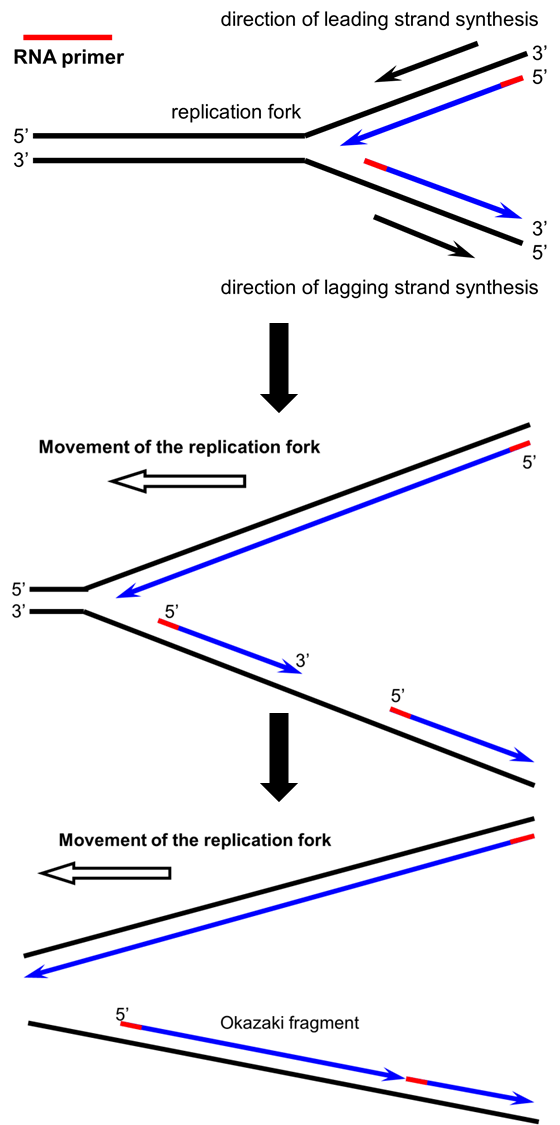

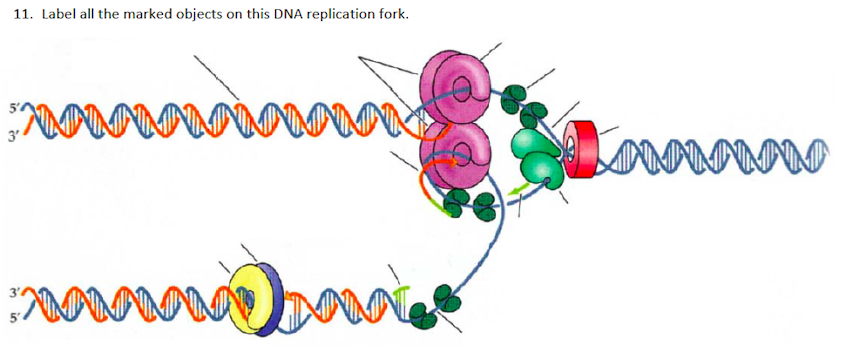

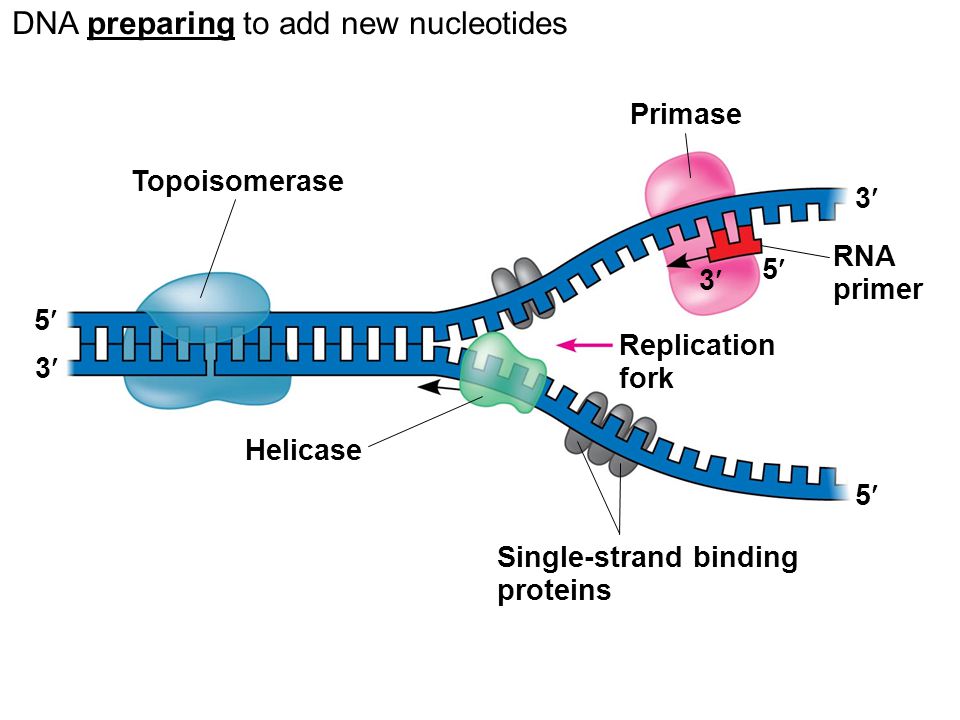
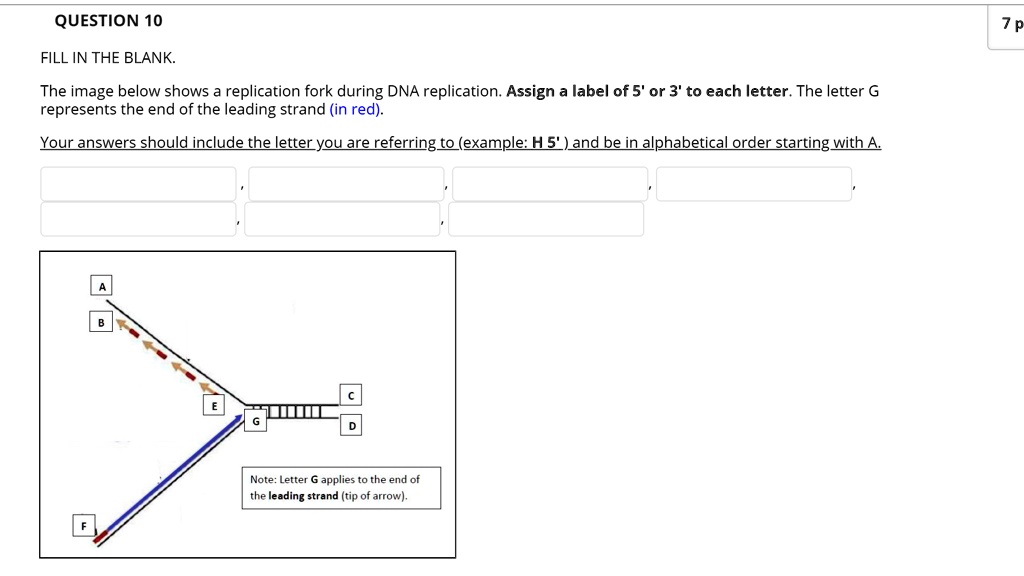

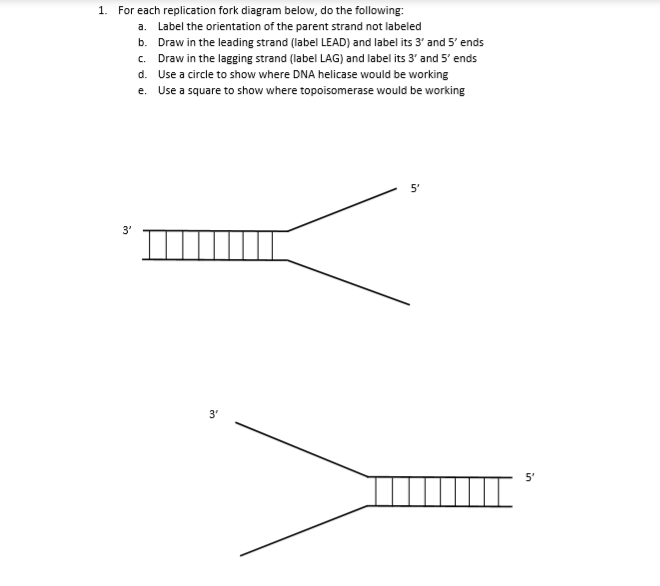
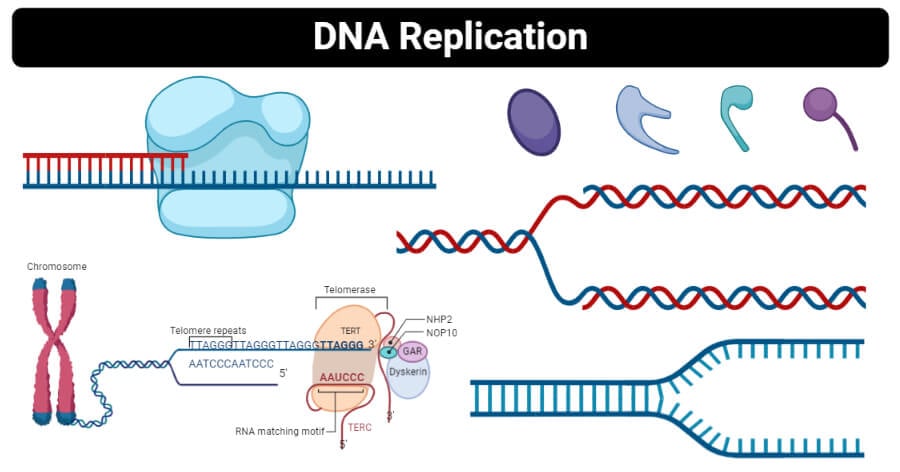


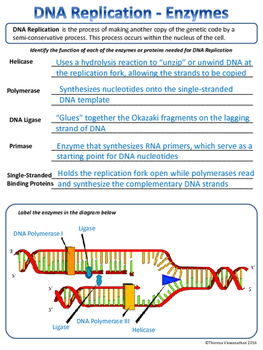
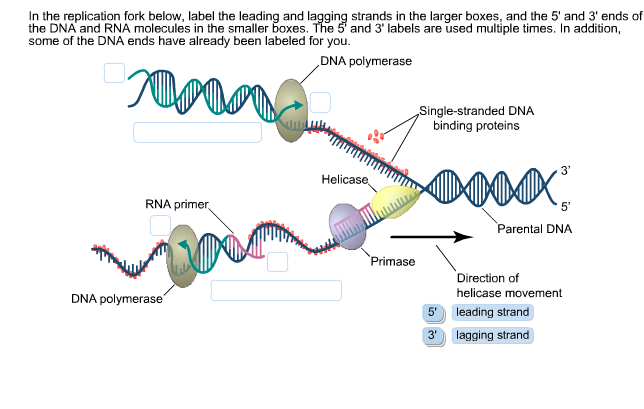
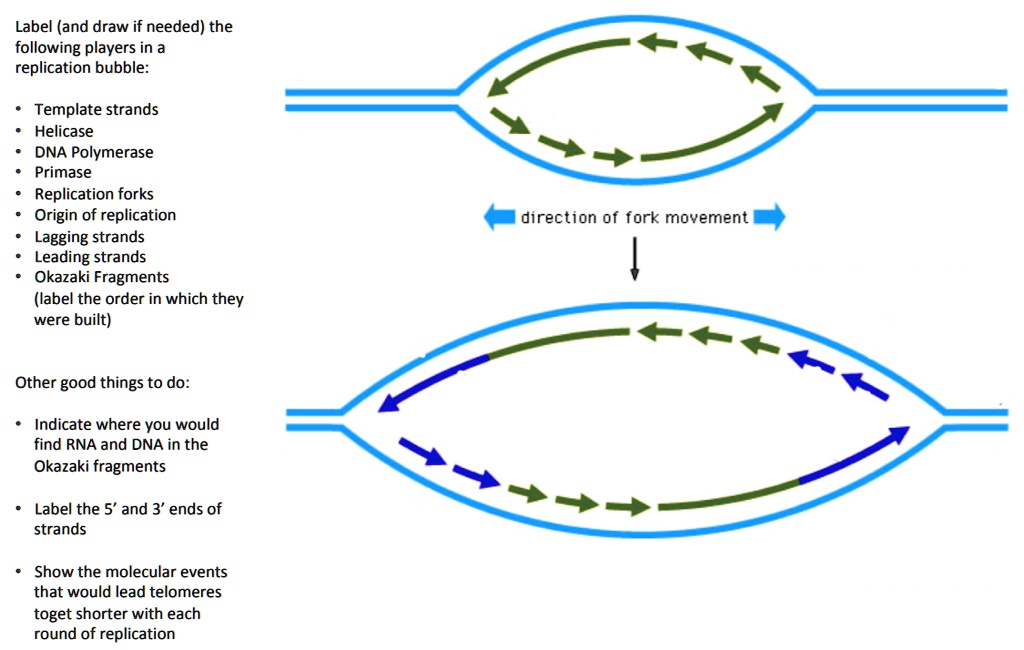
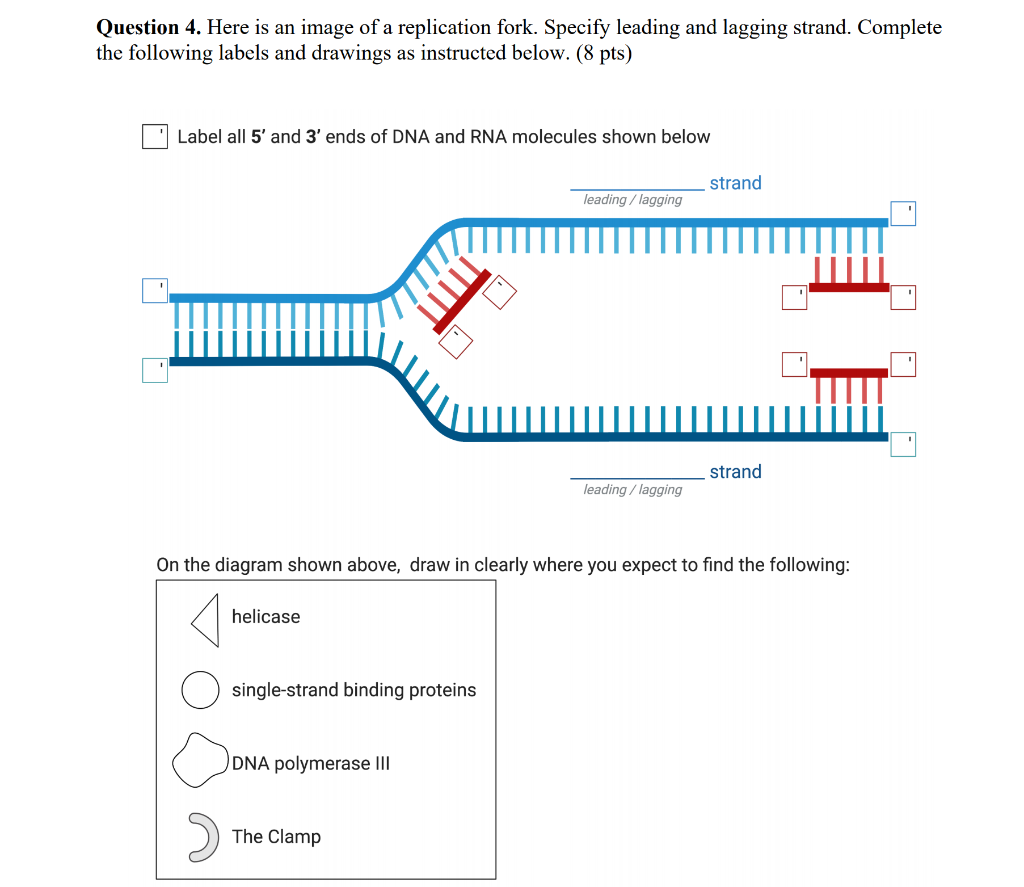


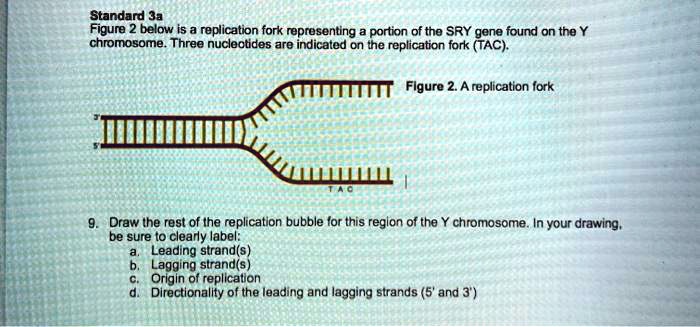



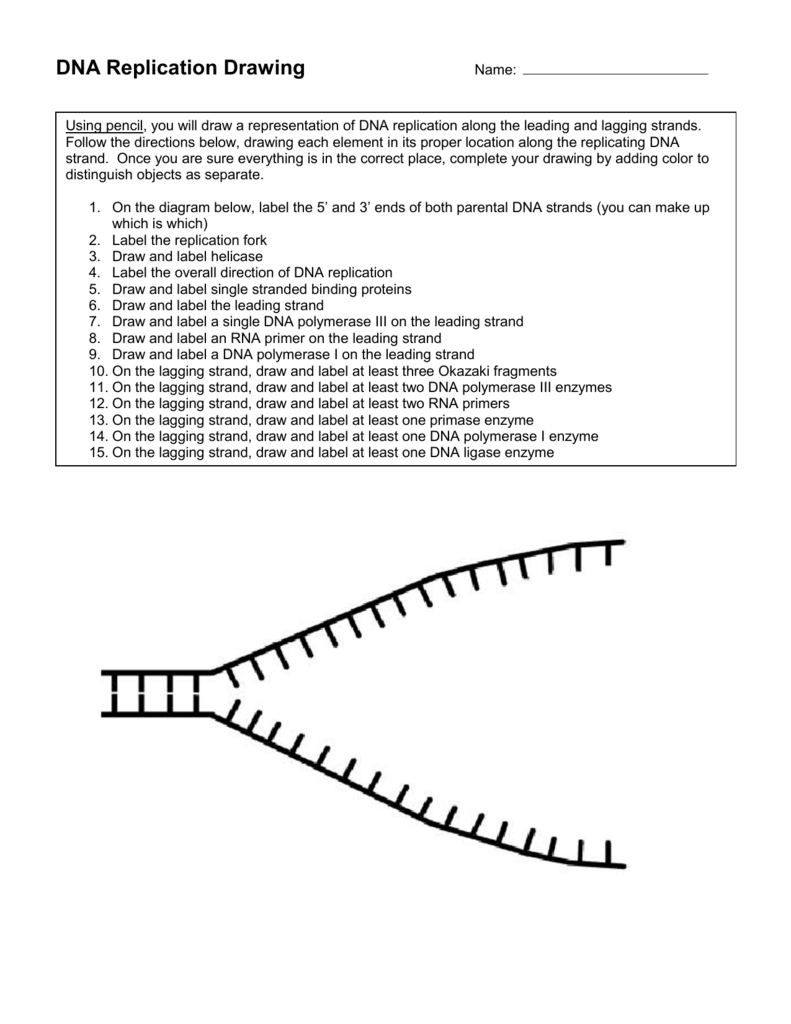
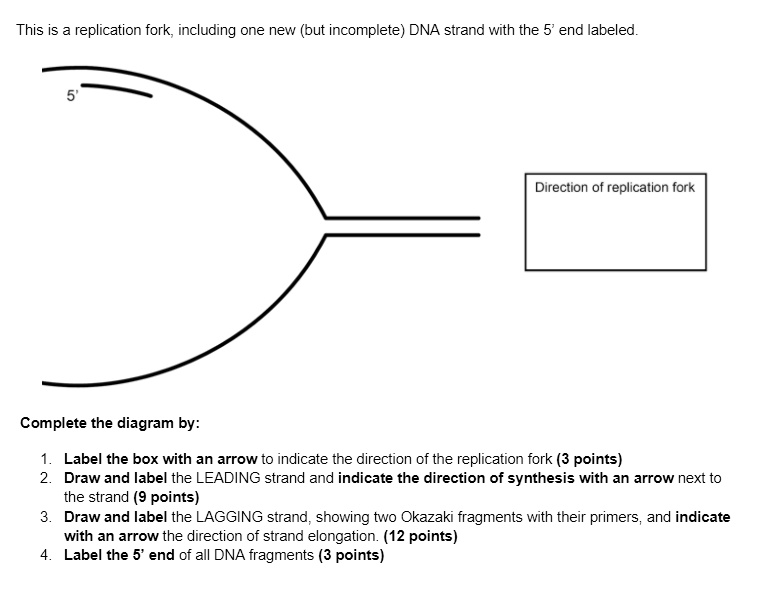









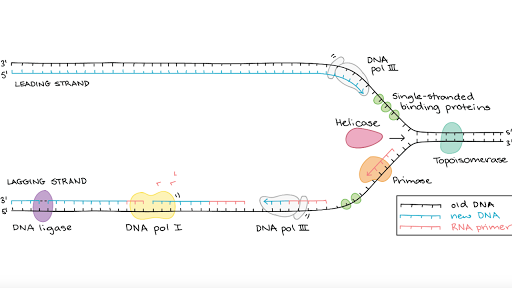
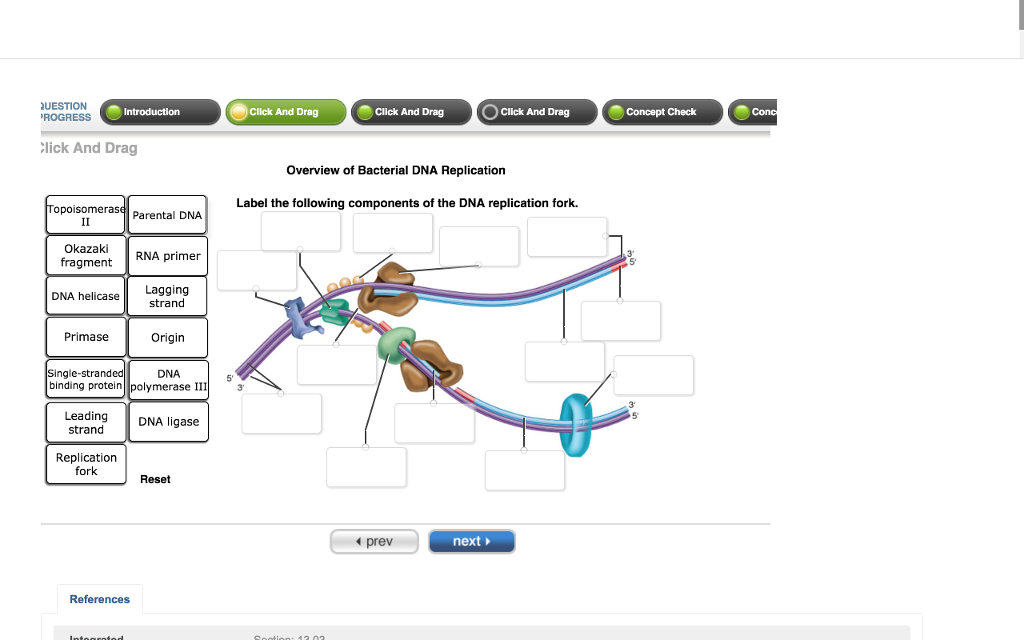
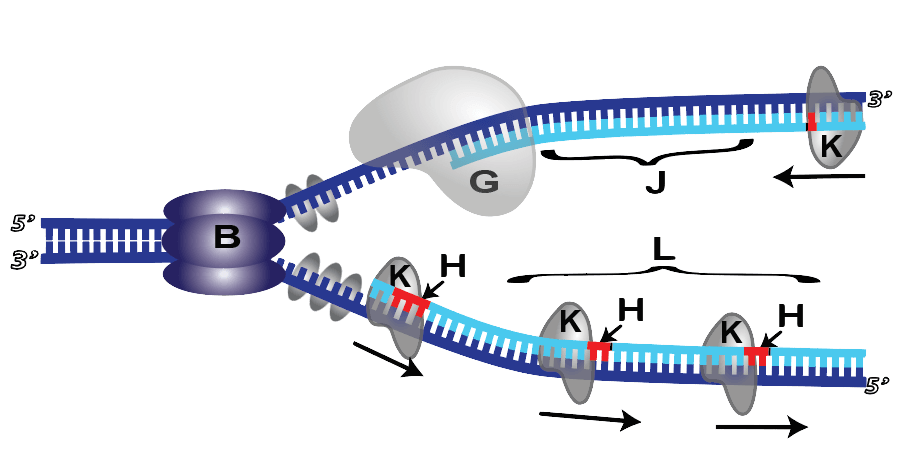


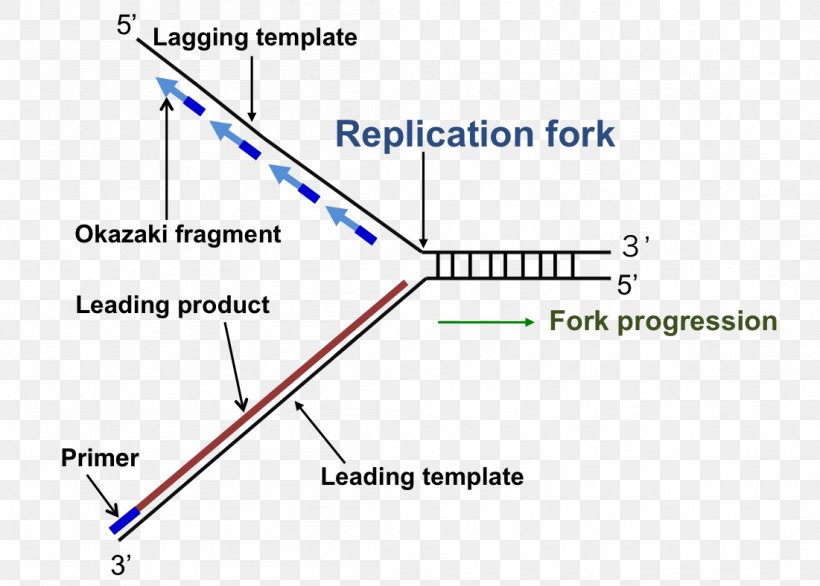

Post a Comment for "43 label the replication fork"